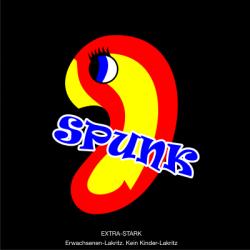The first Reykjavík edition of renowned international music festival Sónar will take place this weekend, and boy is that an exciting prospect. Sónar is of course a most well regarded music festival, conceived and based in Barcelona, Spain, where it’s been an annual fixture since 1994. It has played host to almost every major player in electronic music and beyond, ever, billing itself as a ‘Festival of Advanced Music and Multimedia Art’—the Barcelona edition also features cinemas, art exhibitions, technology forums, conferences, etc. It is a Big Thing, and now it’s in Iceland, with the intent on being a permanent fixture. We caught up with Sónar Reykjavík manager Björn Steinbekk, who is making his return to the field of concert promotion after a few years’ break, and asked him what’s up with this whole thing.
Greetings, Björn Steinbekk, head of the newly minted Reykjavík edition of the prestigious Sónar music festival. Firstly, what can you tell us about yourself? Have you long been involved with promoting shows in Iceland? And how has the act of concert promoting in Iceland changed since you first got involved?
I first started out as promoter when I was 16 years old in a group called Pakkhús Postulanna (“The Apostles’ Warehouse”). This fellowship, lead by one Þorsteinn Högni Gunnarsson, was the first to introduce rave parties to Reykjavík, back in 1988. I then carried it on with my friends and we held some memorable raves in Reykjavík from 1989 until 1992. Our venues varied from car dealerships, garages to basements on Laugavegur.
My first large arena concert was The Fugees in Laugardalshöll in 1997. That must be the most memorable concert I’ve promoted, due to its nature and the long road we took to make that happen.
Since I started doing this, the biggest changes are that the professionalism in the field has improved greatly, and those servicing concerts, companies such as Exton, have built up an inventory of knowledge and equipment. The only downside in today’s concert business is that the public’s ticket purchasing behaviour has changed. Icelanders have become very late in buying tickets.
WHY FEBRUARY, WHY?
The first edition of Sónar Reykjavík seems a ludicrously ambitious endeavour, as was to be expected from such an esteemed festival brand. How did Sónar Reykjavík come about—how long has this been in the making?
I along with Grímur Atlason from Iceland Airwaves had a meeting with Icelandair CEO Birkir Hólm Guðnason and VP of Sales and Marketing Helgi Már Björgvinsson. They asked if an event during the winter could be established, “something like a DJ festival,” was the terminology they used. I spoke to Daníel Atlason from LiveProject about the idea and he mentioned Sónar. From there, this was simply e-mails, phone calls, budget making and selling the owners of Sónar the idea that Reykjavík was a viable option. That was not the tough part. The tough part was convincing them that February was the right date. That was probably the hardest sell I have had to do.
Are there plans for Sónar to become an annual event? Will it be a permanent fixture on the ‘annual festival calendar’?
We have a six-year agreement with the festival, so yes, this will be an annual event in February—but only if we believe this can be a success and manage to break even for the first year.
BELIEVE IN THIS
Did you encounter many obstacles in trying to stage the festival? What are some of the challenges of throwing a world-class party like this in 2013 Iceland?
The main obstacle is simply getting people to believe that you are serious and that this can be done. I thought we would attract considerable support for the festival from the City of Reykjavík and government agencies, but unfortunately it seems we have to establish the festival to gain some real support from those parties. The City of Reykjavík supports Sónar Reykjavík by the amount of 500.000 ISK, which is around 1.000 ISK per foreign guest that will be attending the festival.
Promote Iceland has supported the festival in the form of paying for specially chosen journalists to visit. Harpa and Icelandair have been very supportive of the project, along with our sponsors, but this is an uphill battle for the first year. That is fine, but as politicians keep talking about attracting more tourists to Iceland during the wintertime, we expected more.
IS ÁSGEIR TRAUSTI ‘ADVANCED’ ENOUGH?
Our Facebook page saw some self-described ‘music nerds’ complaining about the inclusion of artists like Mugison and Ásgeir Trausti—whose latest work seems more in the classical guitar music camp—on the bill of an ‘advanced music festival’ Is this something you need to pay mind to when planning the festival? Can artists be ‘too straight’ for Sónar?
Lana Del Rey played Sónar Barcelona in 2012. She would hardly be described as traditional Sónar artist. Sónar is not about what is hip and cool in the electro scene, that is a misunderstanding. Sónar is all about the relevance of the artist and his or her accomplishments. Ásgeir Trausti is a success story. He has sold more records than many do in a lifetime. Mugison has played three times at various Sónar events and in Barcelona. They love him, and he will be performing with his famous Mirstrument. This is not going to be a traditional Mugison show.
What are some of the artists you are most looking forward to seeing perform at the festival?
Squarepusher, James Blake, Ryuichi Sakamoto, Modeselektor, GusGus and the younger and up and coming Icelandic artists that are performing. Reykjavík Allstars in the parking garage stage will be my last rave, where all the old DJs play music from 1987 to 1992.
Buy subscriptions, t-shirts and more from our shop right here!
















